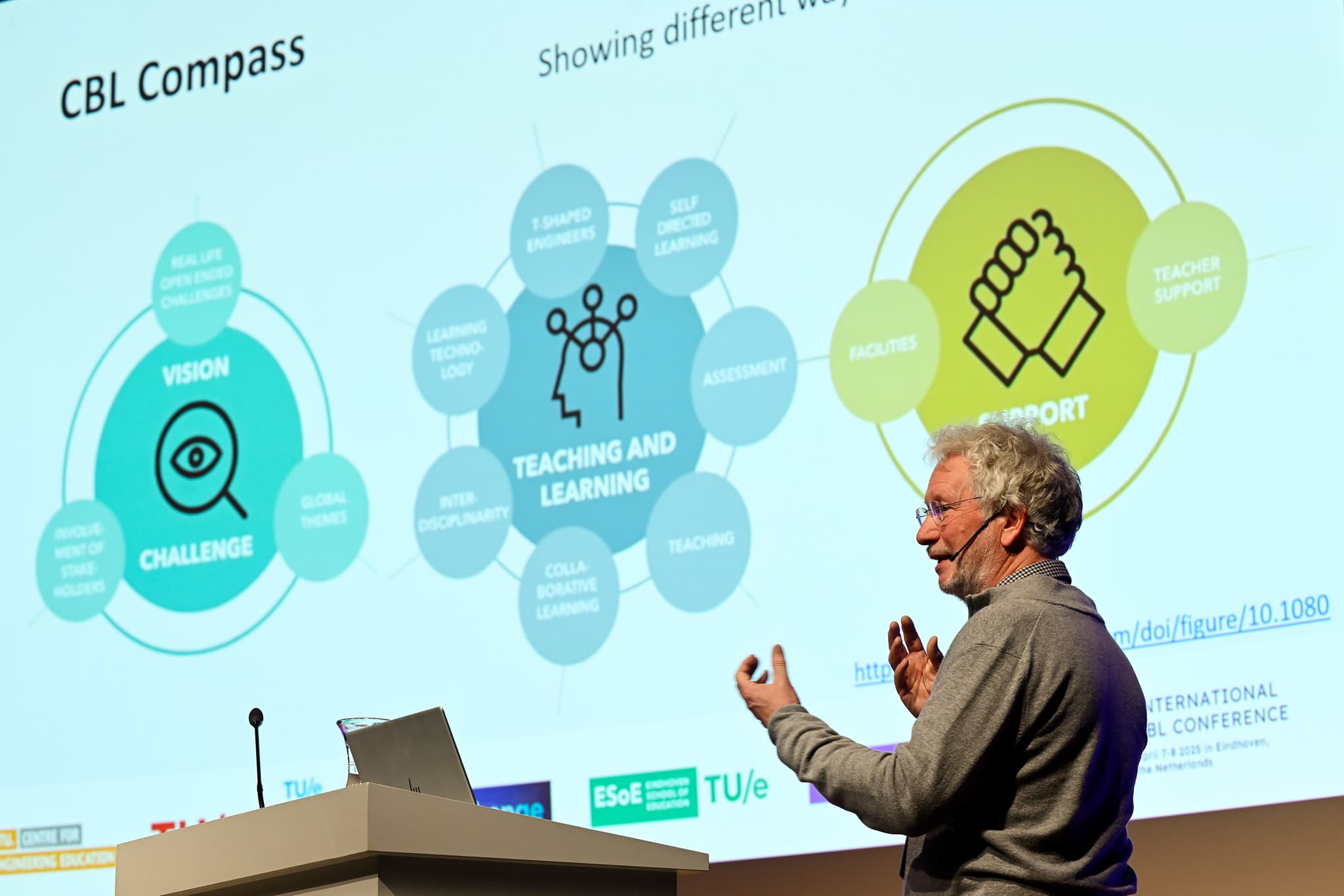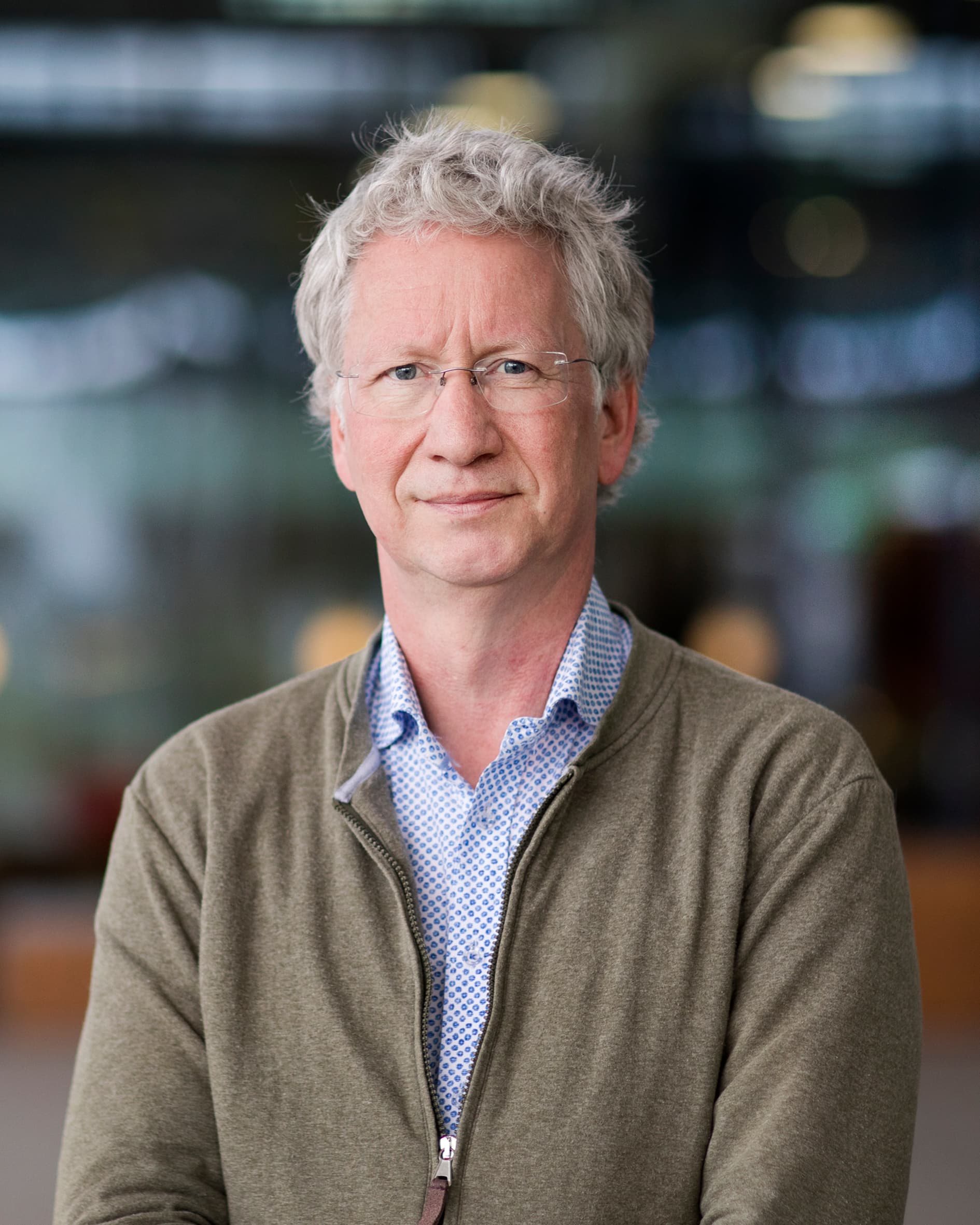Systems engineering education: foundation for hightech production
Educational institutions are joining forces to attract new talent to the profession with the ‘Dutch Approach to Systems Engineering’.
Published on November 8, 2025

Bart, co-founder of Media52 and Professor of Journalism oversees IO+, events, and Laio. A journalist at heart, he keeps writing as many stories as possible.
The Dutch high-tech manufacturing industry is a world leader in the development of complex systems. This leading position can only be maintained if the supply of systems engineers remains at the required level. “The complexity of products is increasing rapidly, so our task of ensuring that there are enough well-trained people to manage this is becoming increasingly important,” says Paul Koenraad, professor at TU/e, Dean of the Graduate School, and director of the Stan Ackermans Institute, which houses all EngD programs in the Netherlands. Together with Erik Puik, lecturer in Smart Manufacturing at Fontys, he is investigating, on behalf of the NXTGEN Hightech Program, how the Dutch Approach to Systems Engineering (DASE) can help to tackle this shortage in a structural way.
From graduate to systems engineer: knowledge and experience are key
The gap between theory and practice
There is a widespread belief in the industry that systems engineers are only truly trained on the job, through experience and failures and through the specific culture that comes with it. Puik responds immediately and strongly in defense of education: “This underestimates the importance of training programs such as ours. Every day, I see experienced people in the classroom who have been running projects for thirty years but have never properly conducted a requirements analysis. They talk about systems engineering as if it were a foreign language they never learned.”
According to Puik, that is precisely why both young students and experienced professionals benefit from good education. “Students fresh out of school have the basics, but they lack the scratches and scars you get in practice. Experienced engineers have those scars, but they lack the fundamentals. It is our job to help both groups move forward.”
Fontys and TU/e
Fontys offers Bachelor's courses and a specialized Master's in systems engineering, where students from different technical disciplines come together. “This year, we have another forty new students, both part-time and full-time, often people who already have experience in the business world,” says Puik. “This leads to a dynamic interaction in the classroom: professionals contribute practical stories, and students sometimes correct them on the theory.”
At TU/e, the emphasis is on master's courses, and especially on the post-master's EngD program. Koenraad: "We are under no illusion that we can train the perfect systems engineer for ASML or VDL, for example, in just a few years. On-the-job experience is essential for that. But we can lay the foundation and create awareness. Thanks to NXTGEN Hightech, five faculties within our university are now discussing how we can structurally embed systems engineering in our programs. That would have been unthinkable a few years ago."
Koenraad does not rule out a separate master's degree in Systems Engineering, but he expects that it will always be linked to a strong disciplinary basis. “You are a systems engineer in chemistry, or in mechatronics, for example, not in a vacuum.”
© Sapfo Tsoutsou
The hard and soft sides
Systems engineering is not just about models, tolerances, and design choices, Puik emphasizes. “There is a hard side: modeling, calculating, testing. But there is also a soft side: communication, collaboration, asking the right questions.”
Puik illustrates this with a recognizable example: "If a customer says, ‘I want a red car,’ you have to ask further questions. Maybe what he really wants is a sports car, or a safe family car because his father-in-law demands it. You learn that by asking ‘why?’ over and over again. As many times as necessary to get to the core. Systems engineers must therefore be just as good at listening and asking questions as they are at calculating and designing.“
The new compass being developed within the NXTGEN Hightech research project aims to bring these two sides together. ”It visualizes not only the technical competencies, but also the social skills that a systems engineer needs," says Koenraad.
Dissemination to the business community
Education is one side, knowledge transfer to companies is the other. Puik: “The most successful route is via students. But it takes ten years before they become experienced systems engineers. That's why I also visit companies myself, with courses that I give six to eight times a year. The best thing is when you get people from different disciplines together around the table: software, work preparation, management. Then the penny drops and mutual respect grows.”
According to Koenraad, there is a broader lesson to be learned here: “It's not just about training, but also about creating a common language and approach. The Dutch Approach to Systems Engineering contributes directly to this.”

Momentum and vigilance
Both educaters notice every day that systems engineering is high on the agenda. “Momentum has been created,” says Koenraad. “Everyone is talking about it, inside and outside the university. We have started to take a critical look: what do we already have, what are we missing, and how are we going to embed it?”
Puik, also author of the book ‘Beyond the V-Model’, even sees a risk of overestimation: “It's such an honorable role that everyone wants to call themselves a systems engineer these days. Even though they may not be doing it at all. I recently wrote about this in Mikroniek: we have to be careful that it doesn't become greenwashing.”
Looking ahead: Dutch Precision Week
A concrete platform to showcase the importance of systems engineering will be available in November during Dutch Precision Week. “On November 10, we are organizing a conference where young professionals will present their graduation projects and compete for the prize for best design logic,” says Puik. “In addition, universities and companies will give tutorials. And all this in the context of precision systems, which are complex by definition. The fact that systems engineering has been given a place there on the first day is significant.”
Not a buzzword, it’s the core
Systems engineering is not a buzzword, Puik and Koenraad conclude, but a discipline that forms the core of the Dutch high-tech manufacturing industry. The shortage of systems engineers is urgent, but with joint efforts by universities of applied sciences, research universities, and companies, and with initiatives such as NXTGEN Hightech, there is hope for the future, they conclude. “We now have the opportunity to make our Dutch Approach the standard, both nationally and internationally,” concludes Koenraad. “We must maintain that momentum.”
